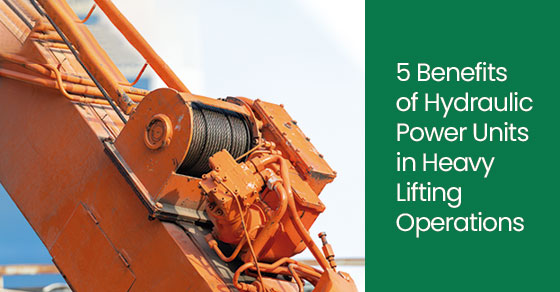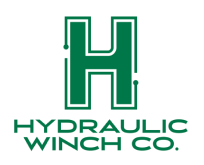
Heavy lifting is common in construction industries, shipping yards, and mining sites. However, the real challenge is maintaining steady performance under pressure, rather than just lifting the weight alone.
This is exactly where hydraulic power units prove essential. By driving hydraulic systems, they deliver reliable forces and precise control.
We will explain what these power units do and why they matter. Crews will also learn five clear benefits they bring to industries that depend on heavy lifting every day.
Why do load-lifting sites rely on hydraulic power units?
Hydraulic power operates through the movement of objects by using high-pressure fluids. Rather than the conventional reliance on gears or an electrical motor alone, the fluid flows through cylinders and hoses. The force produced by pressure reaches a level that enables the movement of loads.
- Hydraulic power works on the principle of force = pressure x area.
- Thus, a cylinder with 10 square inches of surface area under 2,000 pounds of pressure per square inch (PSI) will produce a total force of 20,000 pounds. This force is strong enough to lift a fully loaded shipping container with precise and controlled movement.
Power units are what make this system work. They pump, regulate, and maintain the pressure needed for safe operation. A strong unit ensures a consistent level of force from start to finish, regardless of the job’s difficulty.
Below are the top five benefits of hydraulic power units:
1. Consistent power delivery for demanding loads
Power units are designed to do one thing very well: deliver steady force, even under the most demanding conditions. They maintain a constant hydraulic pressure, which ensures the controlled movement of equipment.
Without consistent force, operations become risky. Unreliable systems often produce sudden drops or spikes in pressure. These fluctuations cause jerky emotions, uneven loads, and in some cases, accidents or equipment damage.
The difference is particularly evident in industries such as marine and construction. In marine settings, a sudden surge in force can unexpectedly shift cargo, straining lines and putting crews at risk. On construction sites, a stall or uneven lift can throw off alignment, slow down schedules, or damage materials.
In both cases, the ability to apply consistent power makes every lift faster and more precise.
2. Improved safety in heavy lifting operations
Safety is always the first concern in heavy lifting. By using controlled hydraulic power, operators can reduce sudden movements, unstable loads, and mechanical stress that could lead to accidents.
Unlike conventional systems, which may rely heavily on manual adjustments, hydraulic-driven solutions deliver force that is easier to regulate.
A major safety advantage comes from built-in overload and cable protection. These features prevent equipment from being pushed beyond its limits. In turn, risks of snapped lines, uncontrolled drops, or system breakdowns are reduced.
When properly maintained, these protections create a safe operating environment for both personnel and machinery.
The versatility of power units also ensures consistent safety across different sectors. From construction sites to manufacturing facilities and offshore operations, the controlled distribution of force lowers the chance of error.
3. Efficiency and reduced downtime
Downtime is expensive. Every stalled machine means wasted hours, lost contracts, and frustrated crews. Reliable power units help stop this problem before it begins due to speed.
With controlled hydraulic power, cycles run faster, heavy loads are lifted in less time, and equipment resets quickly. For example:
- A crane can complete more lifts in a shift without overheating.
- A production line can run longer without sudden shutdowns.
- Maintenance teams spend fewer hours fixing failures, since breakdowns are rare.
This speed translates into efficiency. The more tasks completed in short periods, the more profitable the project becomes.
4. Flexibility across industries
Power units are not limited to one field. Their design makes them adaptable across many industries.
Oil and gas operators use them to lift and move equipment in remote drilling sites. The steady force helps crews handle heavy tools, pipes, and structures under tougher conditions.
In agriculture, the same technology powers machines for irrigation, harvesting, and soil work. Farmers rely on dependable motion and controlled strength to manage large operations without delays.
Utilities also depend on this flexibility. Power units support equipment for line maintenance, lifting transformers, and other infrastructure work. Teams can depend on consistent performance in both routine tasks and urgent repairs.
This versatility demonstrates the value of investing in a single system that meets multiple needs. Instead of different machines for each job, industries can trust power units to adapt.
5. Long-term durability and ROI
Durability sets hydraulic power apart from other systems. These machines are built with strong components that withstand years of intense use. The design also reduces wear and protects against failures that can stop operations. For industries where heavy lifting occurs daily, this reliability is not a luxury but a necessity.
Return on investment comes from this strength. Businesses that rely on hydraulic power systems spend less time on replacement and emergency fixes. The equipment continues to deliver consistent force long after purchase.
Over time, the numbers speak clearly. Lower maintenance costs, fewer delays, and higher productivity create real savings.
Industries Trust Us to Manufacture the Best Custom Power Units
Hydraulic Winch Co. has earned a reputation for trust through years of expertise in industrial winches, hydraulic packs, and custom-built power units. From railroads and marine operations to construction and agriculture, our systems perform under pressure.
For fixed machinery or mobile crews, we provide the best solutions that fit the work. The lineup includes:
- Stationary power units for consistent site use. Low vibration and reliable flow make them easy to integrate with other equipment.
- Portable power units that are lightweight and mobile. They are also designed to deliver the same dependable hydraulic power supply, but with added flexibility.
- Custom builds made for unique requirements. At our manufacturing shop, engineers adjust power output, reservoir size, and control systems to suit your needs.
Every unit is tested, proven, and supported long after delivery. Call the Hydraulic Winch Co. team today at 888-413-6459 or contact us online for quotations or details on a list of effective hydraulic power unit options.
